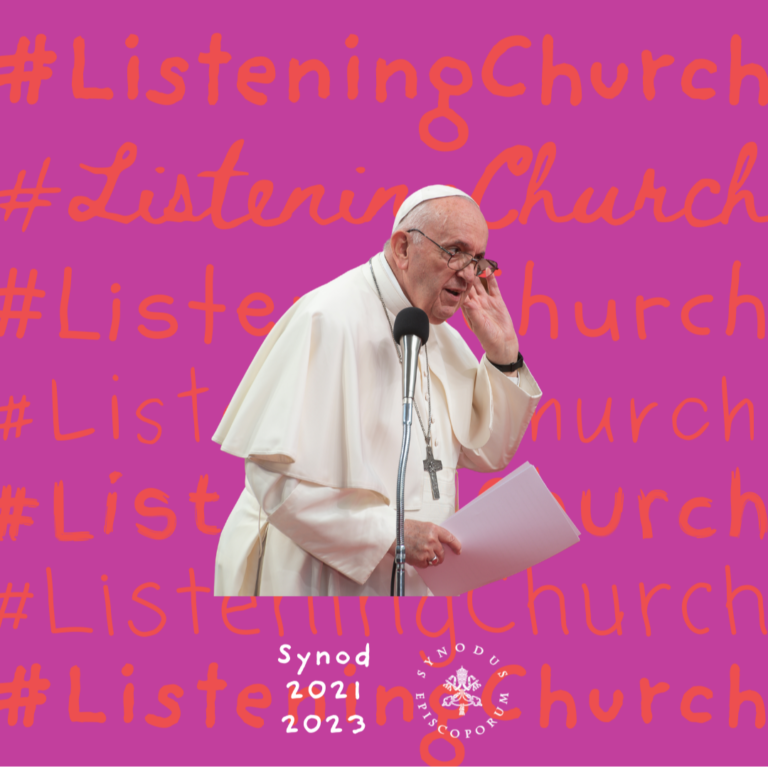
Welcome to the new Synodal Times newsletter.
I’m Ian Dunn and I’ve been involved in Catholic journalism for nearly 20 years. In that time I’ve been called a heretic, a liberal lunatic, an arch-reactionary, an embarrassment to Scotland, and a captain in Pope Francis’s homosexual army.
And that was just from the priests!
Even though I’ve seen up close the dysfunction that drives so much of what happens in the Church – I love being a Catholic. It’s saved my life.
That’s why I’m deeply excited about the potential of the synod and the possibility it offers to all to create a Church that can take the gospel message into the future and leave behind the sins of the past.
I’ll be working with the Synodal Times to bring you the Synodal Signal each Friday. We’ll be reading the signs of the times and piercing the clouds of madness and misinformation on social media to help you better understand the synodal process and where it’s going.
A great place to start with that is reading the paper, the only media publication dedicated to the Church’s radical reform. Going through the most recent edition, two themes jumped out at me; heresy and hope.
The hope is easy. Throughout the synod process we’ve seen so many people, who want to hope, who want to seize this chance to make the Church better. But reacting against that we have that old Catholic desire to control who gets to speak and what they say. The fear of the heretic and being a heretic ourselves is always with us.
I really felt the hope in the article by Noluthando Honono, a young Catholic activist from South Africa. Here in Europe, it can sometimes feel like we’re rehashing the same old arguments, but around the world, there’s a freshness to their approach to the synod that really appeals. She also has one of the best definitions of synodality I’ve read.
‘It is rooted in the ability to listen with intent and to engage with no malice. The process of discernment is not a mechanical exercise of gathering data for debates or meetings. It is listening to one another, our faith traditions, signs of the times, and the movement of Holy Spirit.’
I also found hope in Ger Gallagher’s piece about what young people want from the Synod, despite its gloomy tone.
Now Ger is no spring chicken himself, but he’s worked in youth ministry for 30 years. He’s seen up close the youth abandoning the Church in Ireland, the same as they are all over Europe. Yet he has hope.
‘The Synod can provide the catalyst for the Church in Ireland to reflect on not just what do we do for young people but listen to their voices too’.
Now onto the Heresy! I’ve known Garry O’Sullivan for a few years now and he’s not short of an opinion or two or afraid to speak plainly. In his latest barnburner, he’s on the front lines for freedom of thought in the Church.
‘Catholicism has manoeuvred itself into too many doctrinal cul-de-sacs, for which it is now paying the price. Question those cul-de-sacs and you are told you are a heretic; thankfully they don’t burn to death heretics anymore’.
In another age, he’d likely be first in line. But now he and others are speaking out because in a synodal era, there’s an opportunity for openness and there’s a drop of hope that too.
But let’s finish with something a bit different. Tommy Tiernan is a comedian out of Ireland, who is no one’s idea of a conventional Catholic but his musings on peace, through the lens of the Last Supper are as good as any sermon I’ve heard.
“That Thursday evening was the beginning of the chaos. They were being hunted, they would never sit like this again. The unity of the group was about to be shattered, their leader, the head of the family about to be murdered, betrayed by one of them. And in the midst of all this, he turns to them and says: ‘I leave you peace, my peace I give you.’ What did he mean?”
Now If you liked this, please recommend it to a friend. If you are that friend you can subscribe to the newsletter here. And if you really liked it you can support our work here.
And if any of the above sparked a stray thought, hit reply. I’d love to hear from you.
God Bless,
Ian



